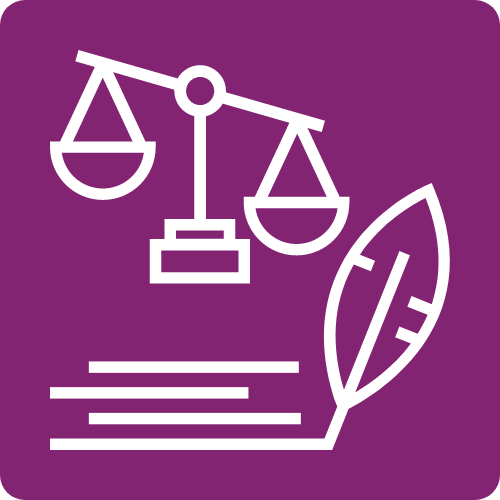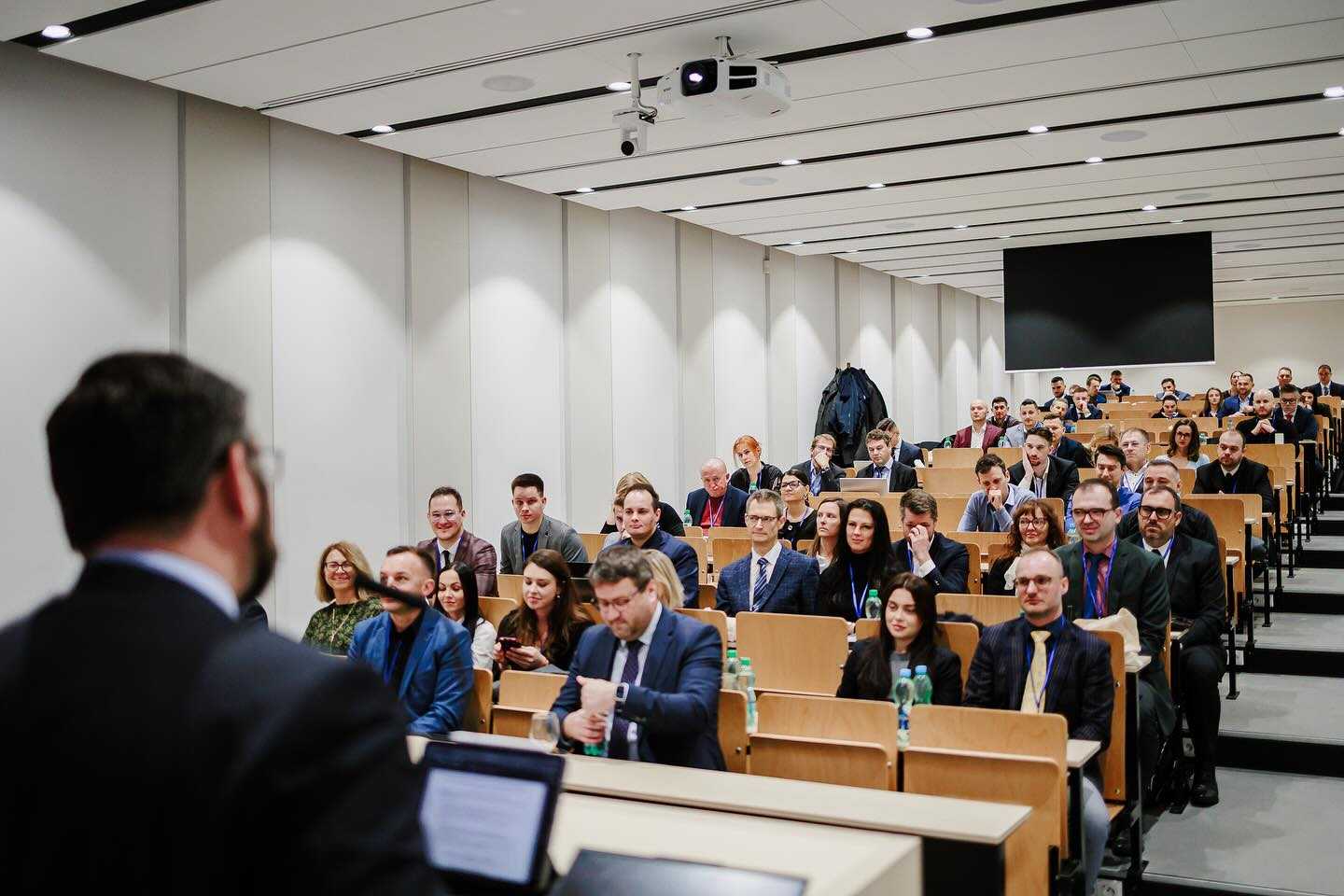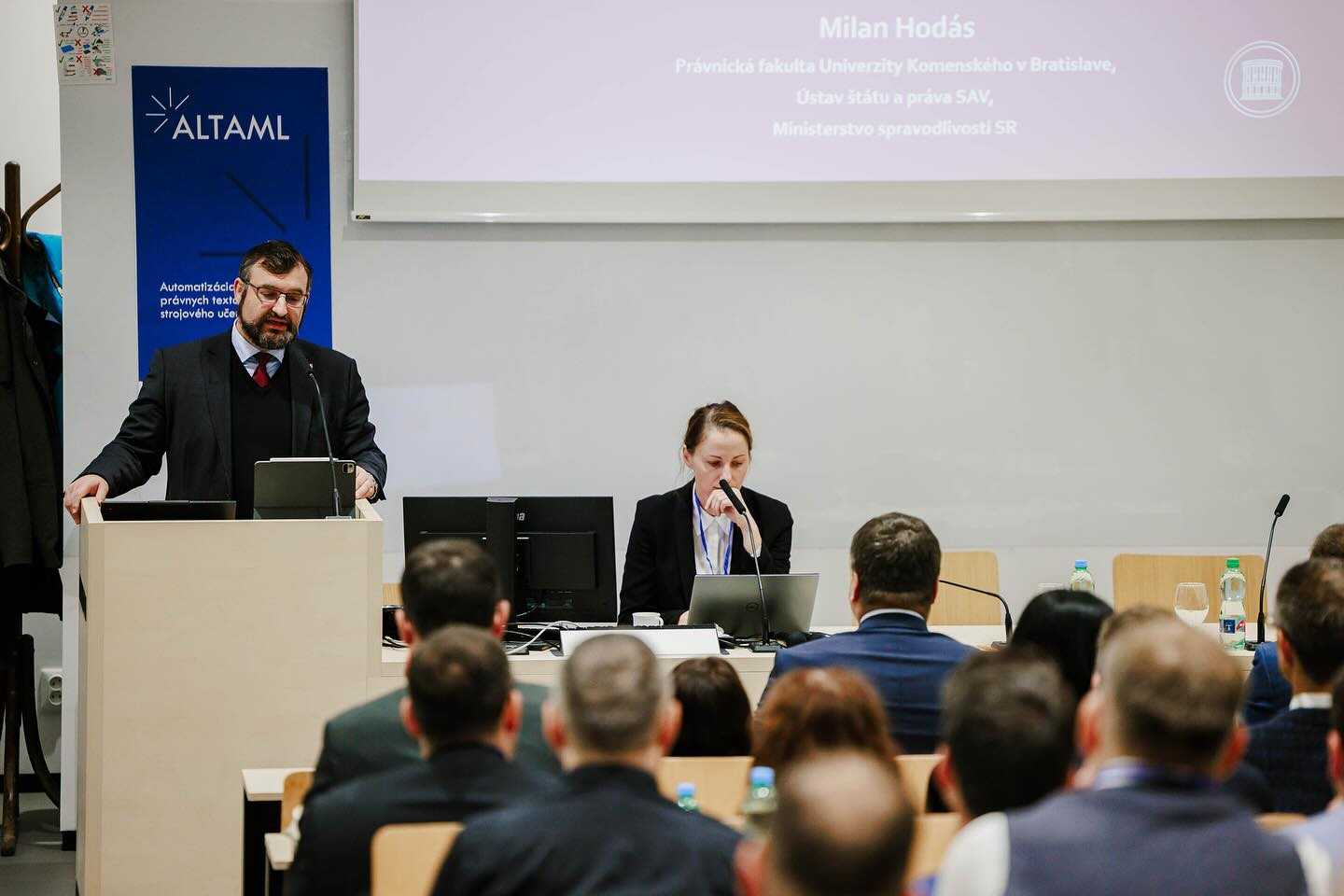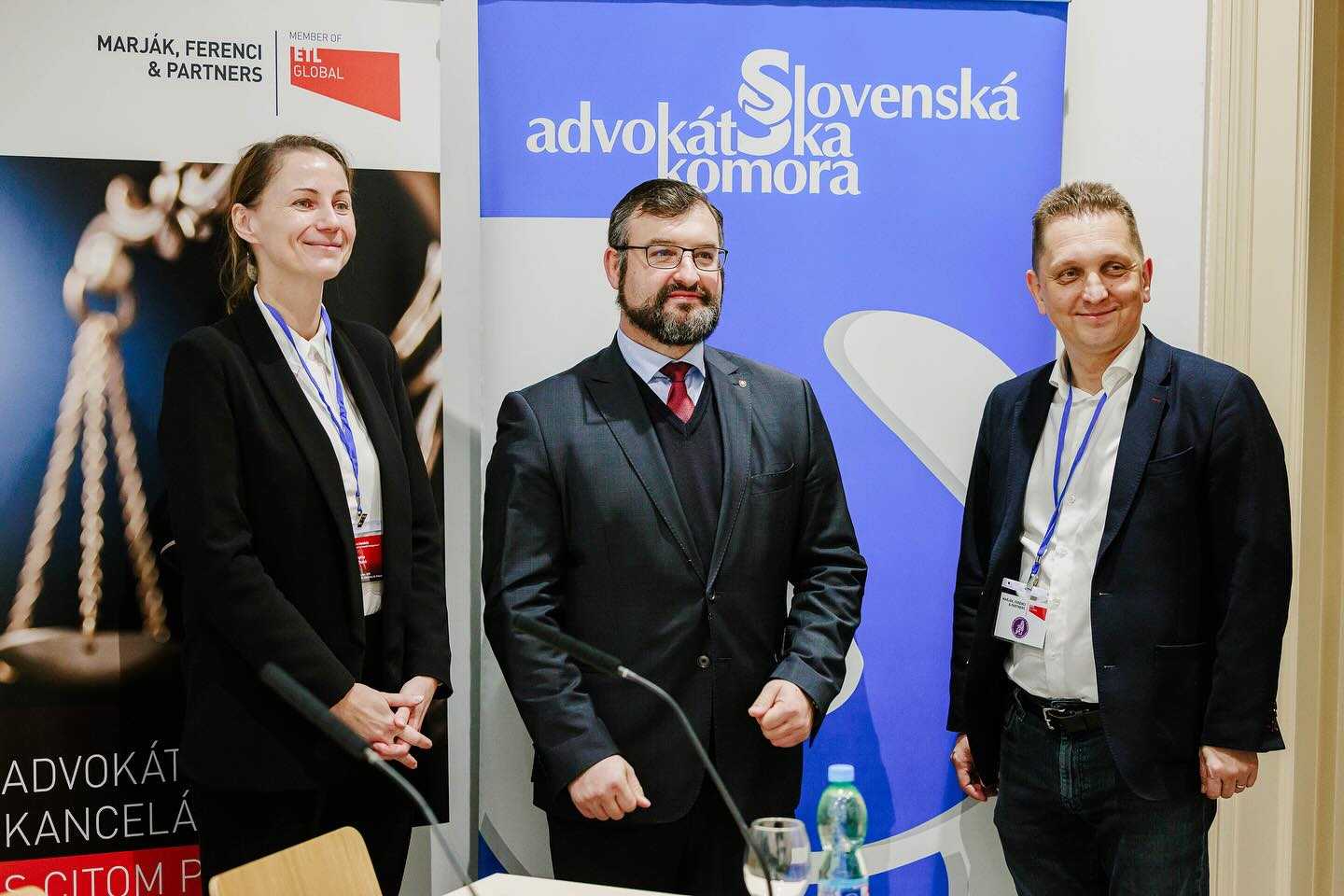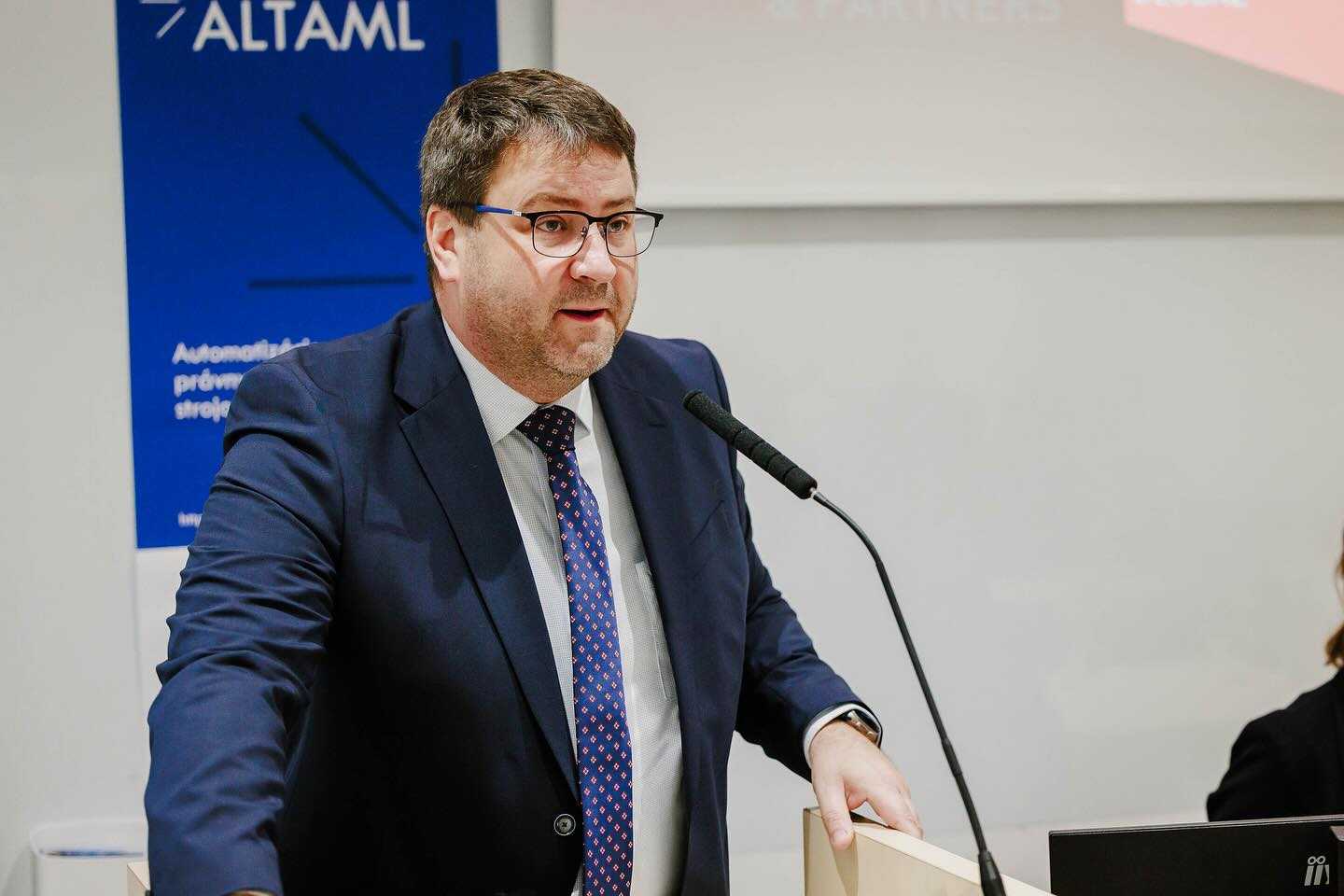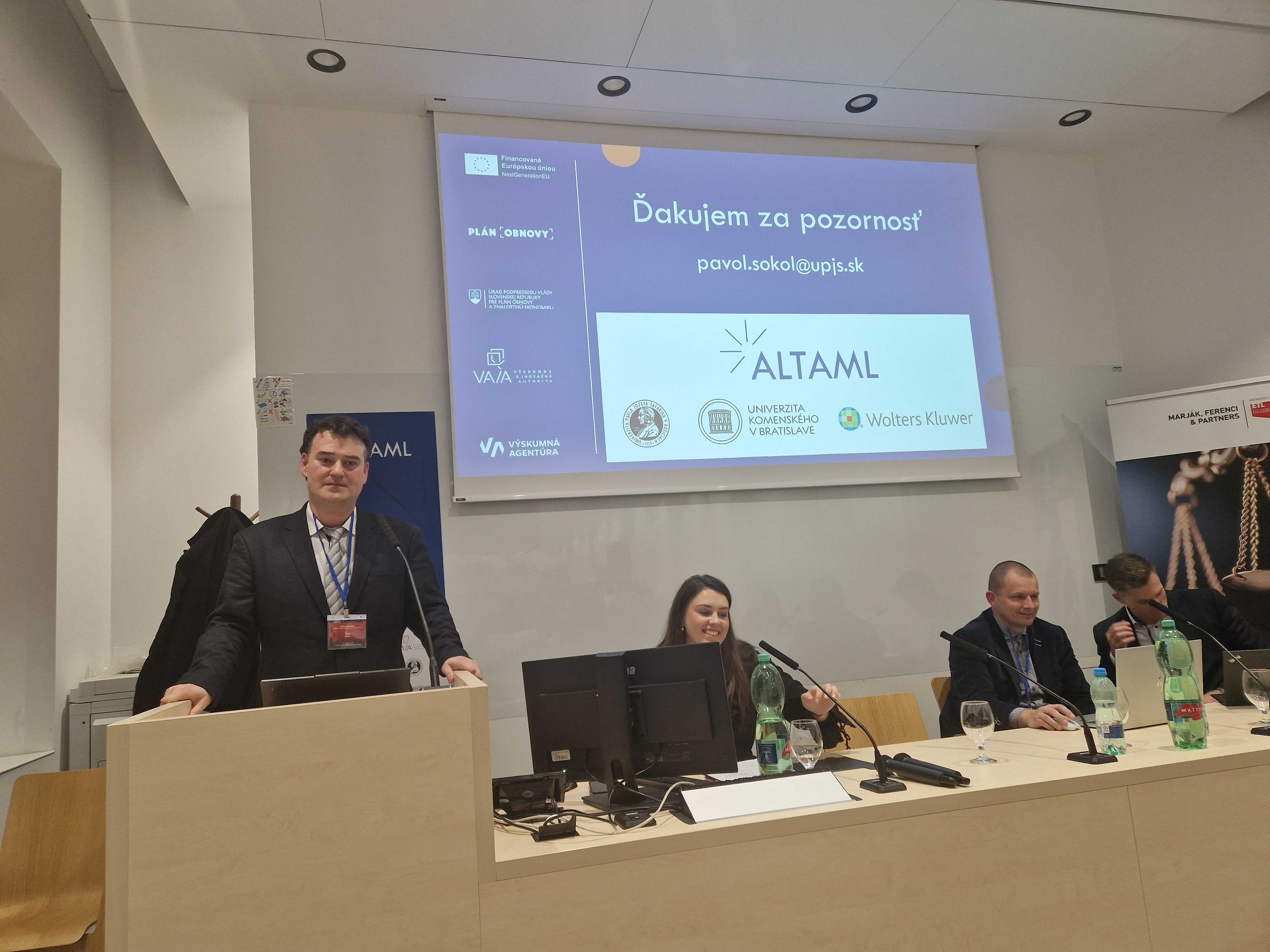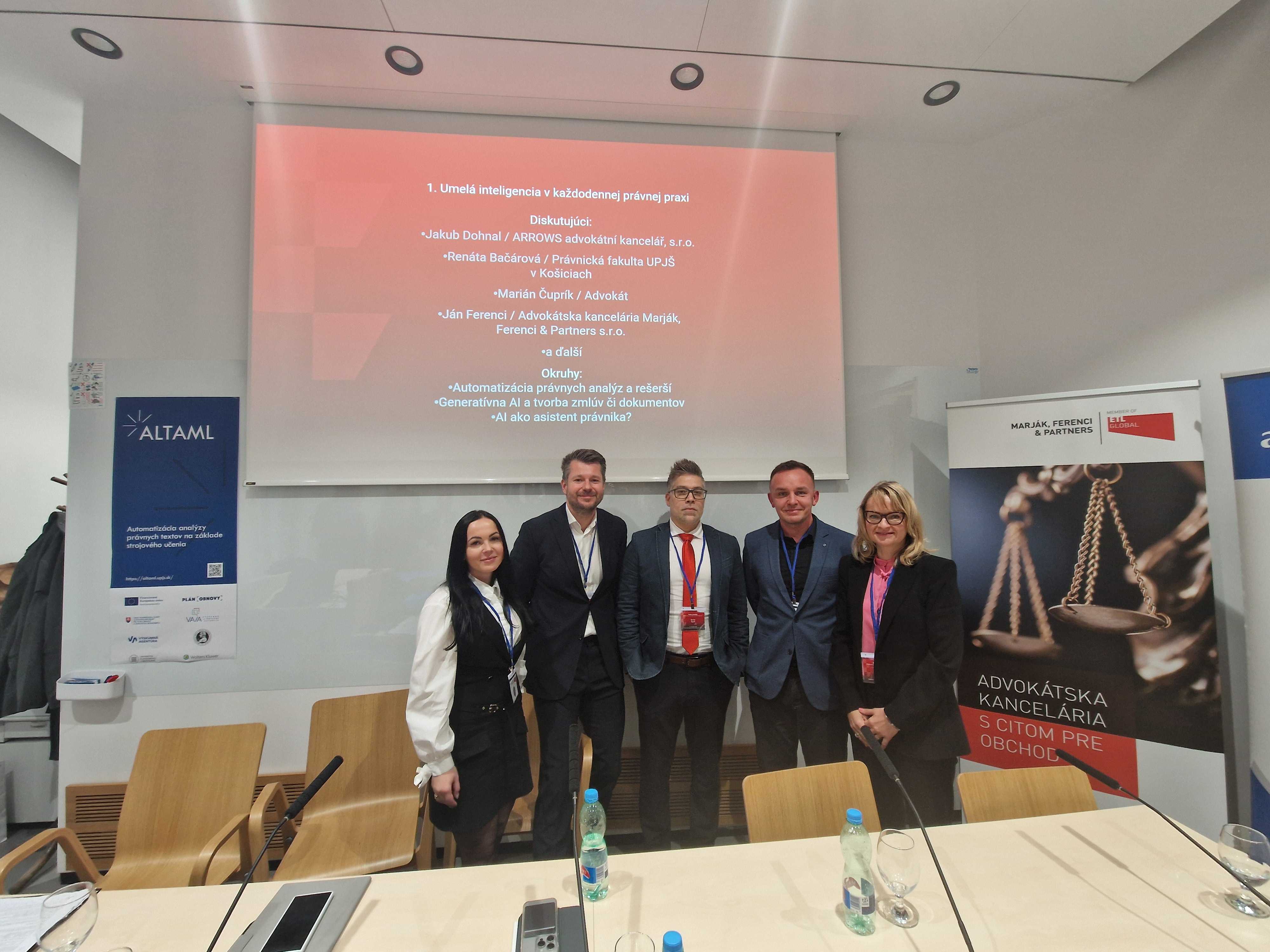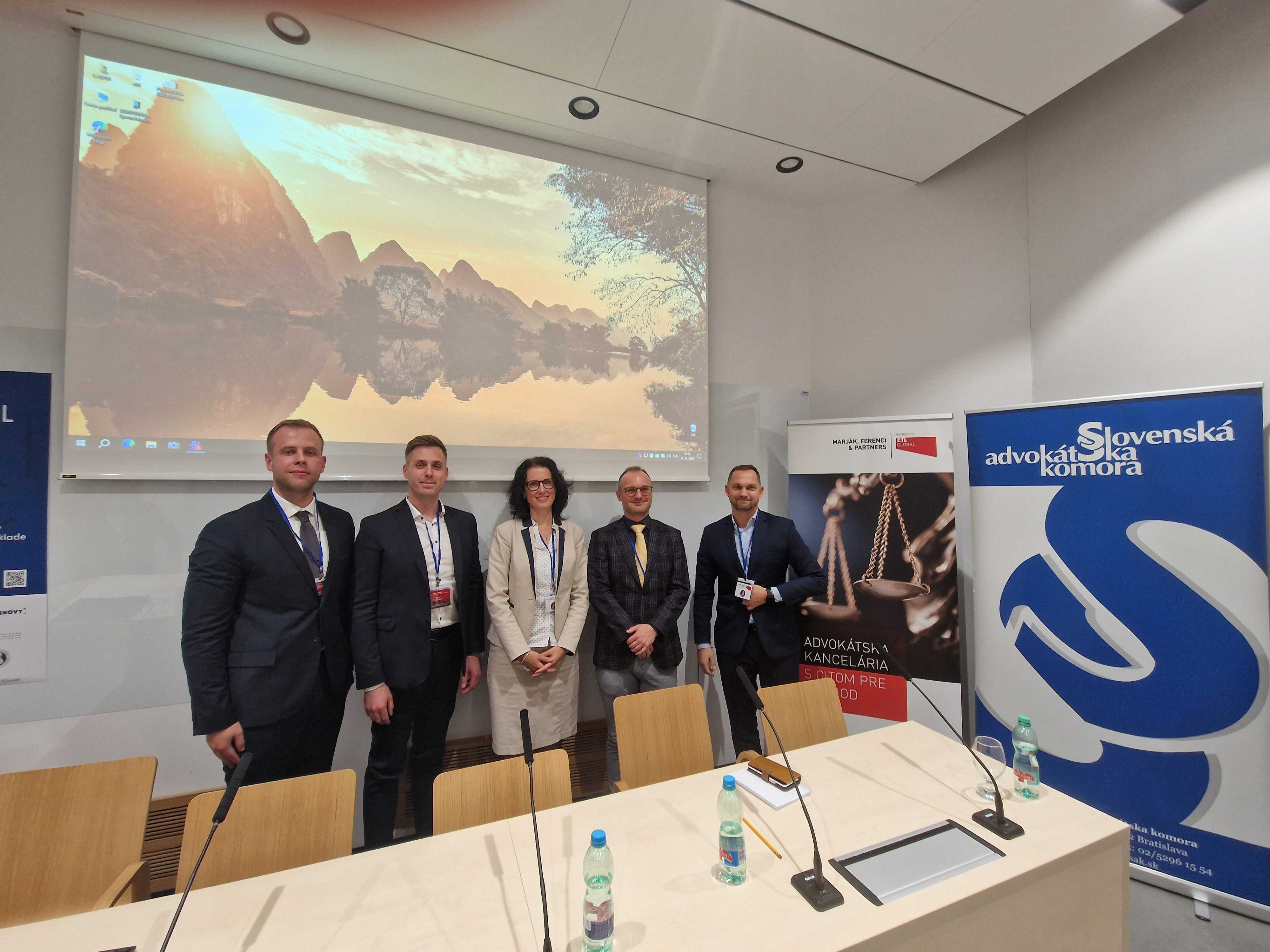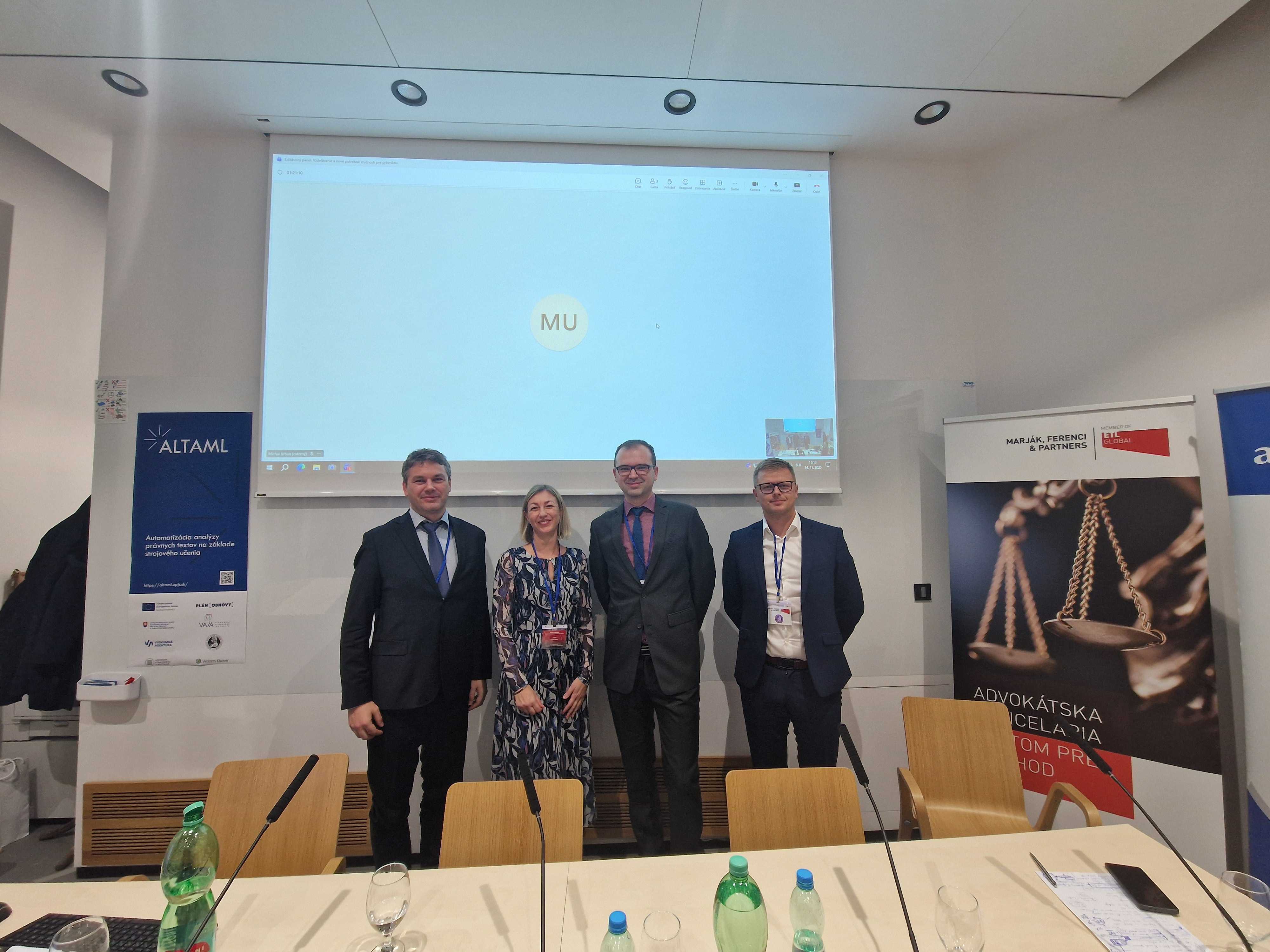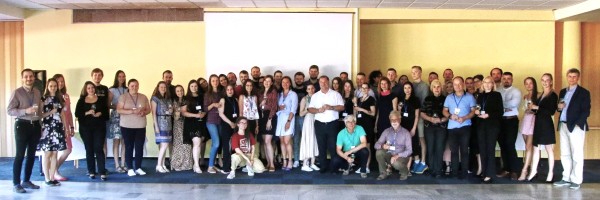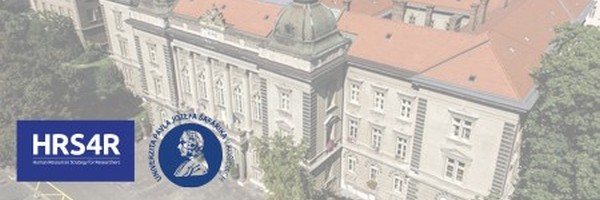The Department of Commercial and Business Law, in cooperation with the Institute of Informatics at the Faculty of Science, organized the “Law and Innovation – Is Legal Practice Ready for Artificial Intelligence?” conference on November 14. The event was part of the ALTAML project (https://altaml.upjs.sk/), realized in collaboration with the Faculty of Law of Comenius University in Bratislava and Wolters Kluwer.
The main goal of the ALTAML project is the efficient processing and analysis of legal texts to ensure legal certainty and improve access for both professionals and the general public to legal texts, the results of their analysis, and the relevant legal information derived from them.
The conference brought together experts from academia, the legal profession, the judiciary, and the tech sector to discuss the challenges and opportunities arising from the rapidly evolving field of artificial intelligence.
The expert forum featured Milan Hodás, First State Secretary of the Ministry of Justice of the Slovak Republic; Matúš Mesarčík and Michal Rampášek from the Faculty of Law at Comenius University in Bratislava; Igor Ribár from the Slovak Bar Association; and Daniel Pospíšil from Palacký University Olomouc. Their presentations addressed legal and meta-legal challenges of AI, the current state of regulation, professional and ethical issues in law practice, as well as practical experiences with AI implementation abroad. Following the presentations, a discussion opened up new perspectives on responsibility, the quality of legal services, and the need for continuous legal education.
In subsequent panel discussions, experts from law, academia, and the tech sector explored the application of AI in everyday legal work, automation of legal processes, document drafting using generative models, and whether AI can be seen as a practical legal assistant. The second panel focused on the future of legal professions, particularly those most likely to be affected by automation, and the changing value of legal services in the digital age. A session on education highlighted the need for new digital skills, interdisciplinary collaboration, and closer integration of legal studies with modern technologies.
The program also featured a presentation of the ALTAML project’s interim results by the project leader, Pavol Sokol from the Faculty of Science. Project partner Wolters Kluwer showcased implemented AI tools, while the AI Association presented its activities in building a sustainable AI ecosystem.
The “Law and Innovation”conference offered a wealth of inspiring ideas, engaging discussions, and practical insights in the field of AI. The event was the continuation of long-standing collaboration between the Faculty of Law and the Faculty of Science, supported by the law firm Marják, Ferenci & Partners. We believe that such gatherings will continue to inspire new ideas, practical experiences, and innovations in the professional community.

